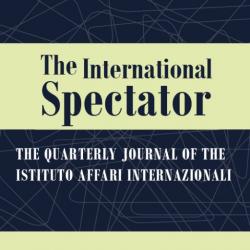Bureaucratic Politics and Informality in Foreign Policy-making: The Case of Indonesia-China Relations

How do governments respond to bilateral relationships characterised by growing economic cooperation on one side and concerns about national security on the other? The existing literature has mainly employed systemic, domestic and individual levels of analysis, but has failed to scrutinise the important bureaucratic aspect of policy-making. By focusing on Indonesia’s policy towards the People’s Republic of China’s (PRC) assertiveness in the South China Sea (SCS), we examine the role of the ‘curator’, an official tasked with ensuring successful policy outcomes by often bypassing formal institutions in the policy-making process. Arguably, the main reason Indonesia maintained a relatively coherent policy can be attributed to the role of the curator, who worked within an informal space to coordinate maritime policies enacted by a bureaucratic apparatus that was deemed to be hindering the president’s approach. By incorporating informality as a mode of coordination, this analysis of Indonesia-China relations advances the bureaucratic politics model in FPA.
Keywords: Indonesia; PRC; bureaucratic politics; informal space; policy-making; South China Sea
-
Details
The International Spectator, Vol. 58, No. 3, September 2023, p. 131-151 -
Issue
58/3 -
ISBN/ISSN/DOI:
10.1080/03932729.2023.2235140


